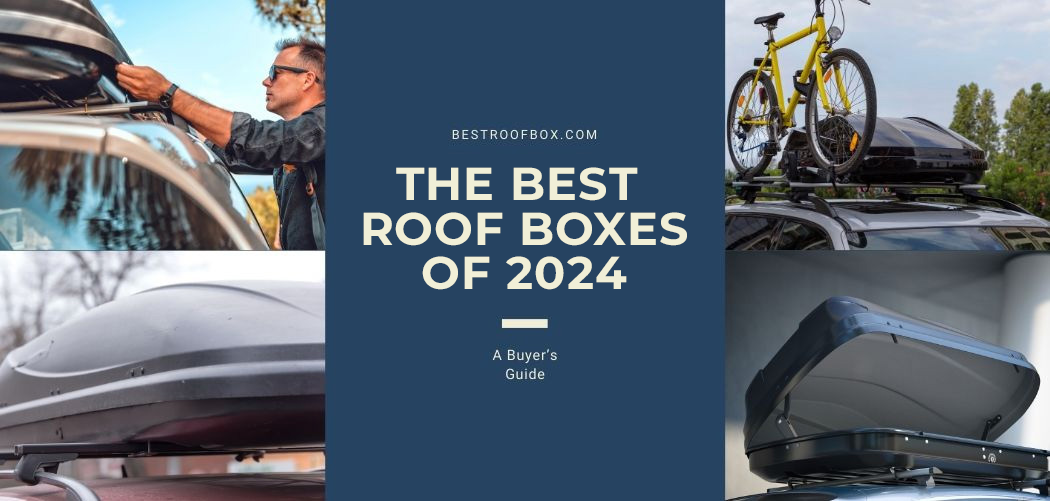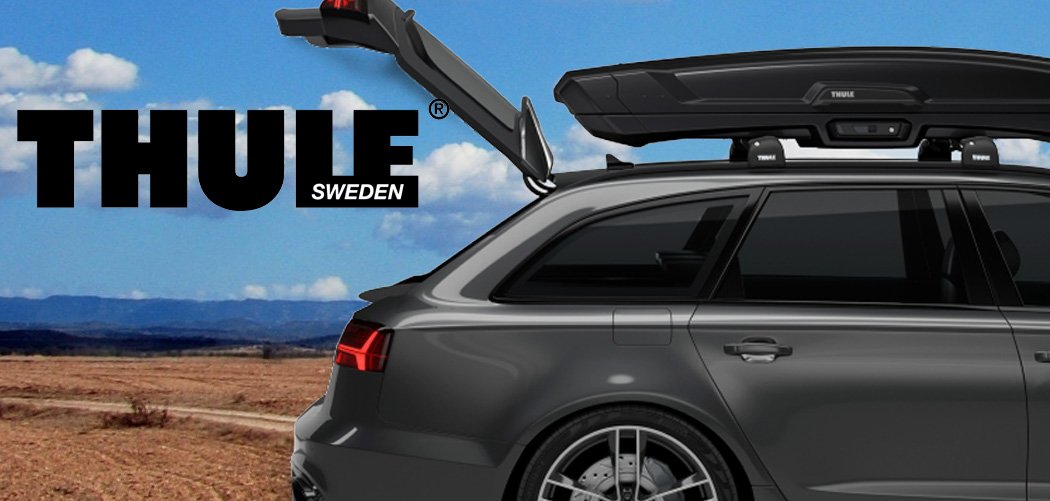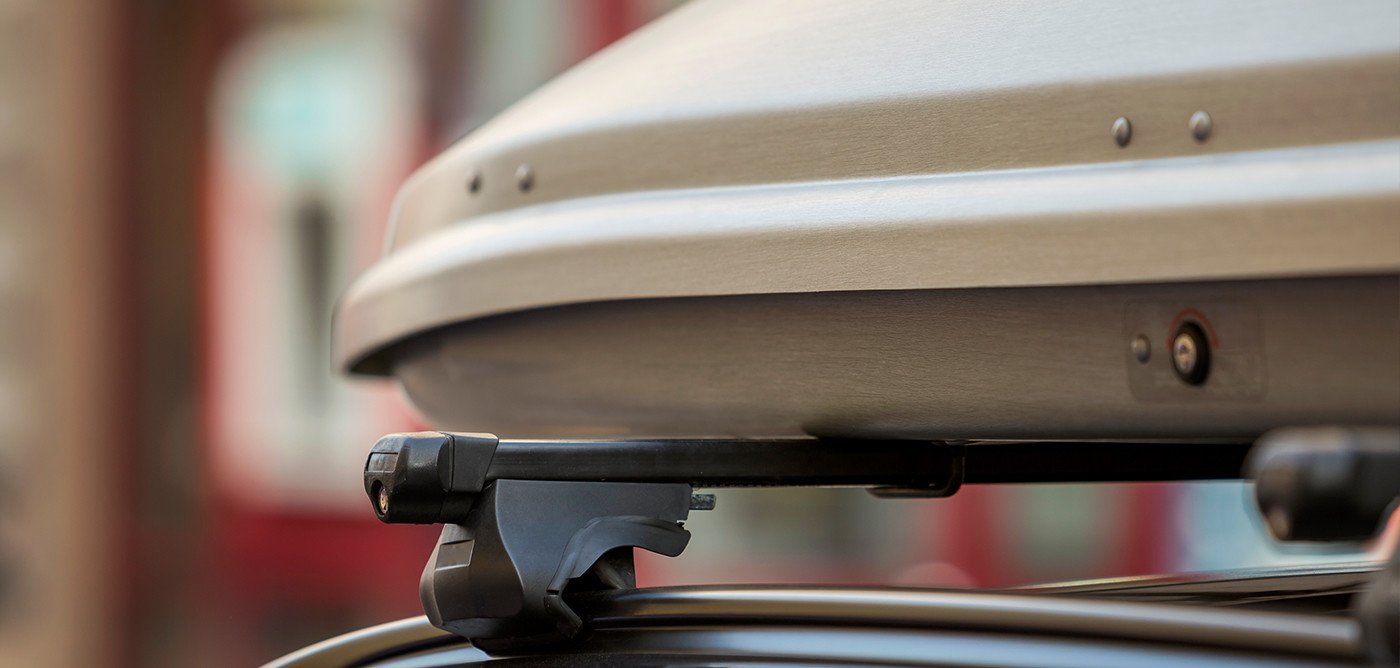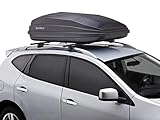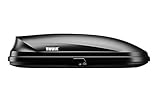Just how fast can you drive with a roof box above your car?
Cargo carriers come in two basic styles – the box design and a bag design – and it is up to you to decide which one you prefer.
Having a cargo box, either empty or fully loaded definitely affects the aerodynamics of your car, thus affecting your speed and fuel efficiency. However, the difference it makes in terms of your mileage is really small that the benefit of having the extra storage totally outweighs the downside of spending a bit more on the gas, hence it is still ideal to make use of cargo boxes, specially when you’re in need of that extra storage space.
Table of Contents
How fast can you drive with a roof box?
- The legal maximum speed you can drive while carrying a roof box depends on your location. In the US, there is no federal law, but some states have local speed limits of 65-70 mph.
- Most roof box manufacturers recommend a top speed of 80-90 mph when carrying cargo. Above this speed, air resistance and noise can increase significantly, affecting vehicle control and stability.
Safety Considerations When Using a Roof Box
Now that you’ve identified how fast you can drive with a roof box above your car, it’s now time to discuss factors you need to consider in order to have a safe and accident-free travels.
Cargo box size, shape and aerodynamics

The size and shape of the roof box directly affects air resistance. Larger or more boxy designs create more surface area for wind to push against. Traveling at high speeds, this additional wind load can cause the vehicle to feel less stable and harder to control. Aerodynamic boxes from brands like Thule experience smoother airflow, but any roof box still increases air resistance over driving without one.
Vehicle type and weight capacity
Sedans and lower vehicles are more impacted by wind than SUVs and crossovers. Don’t overload your roof or exceed your vehicle’s roof load limit, which is typically 150-165 lbs. Heavier boxes require slower speeds.
Road and Weather Condition
Just like driving in heavy rain or snow, strong winds necessitate slower speeds to maintain control. Be especially cautious on highways, bridges and remote roads. Avoid carrying in high winds if possible. Watch for road debris or falling cargo that could come off other vehicles in bad weather.
Safety is the top priority when driving with a roof box. Be aware of how it alters your vehicle’s handling and braking ability. Slow down to account for reduced stability, keeping in mind the box’s aerodynamics and your vehicle type. Adjusting speeds for conditions is key to arriving safely at your destination.
5 Tips When Travelling with Rooftop Cargo Carrier
Whether you choose a rooftop box or a bag, or even one of the many rooftop baskets available, there are some things you can do to increase its efficiency and make your drive safer and quieter. Below are a few of those tips:
Tip #1: Don’t overload the carrier
 Although most manufacturers don’t mention a roof box maximum speed for their carrier, they do have a maximum weight amount, which should always be respected. If the maximum load is 150 lbs, never try to carry 200 lbs. worth of equipment. If you do, it can damage your vehicle and make it even more difficult to drive with the carrier on top.
Although most manufacturers don’t mention a roof box maximum speed for their carrier, they do have a maximum weight amount, which should always be respected. If the maximum load is 150 lbs, never try to carry 200 lbs. worth of equipment. If you do, it can damage your vehicle and make it even more difficult to drive with the carrier on top.
Tip #2: Always keep in mind the height of the carrier
Driving into a parking garage when you can’t remember how tall the box is can be disastrous. So can driving under low bridges, so make sure you always remember how tall your rooftop carrier is before you travel anywhere.
Tip #3: Make sure the carrier is tied down and locked properly
 The last thing you want is to have your things start flying out of the vehicle as you’re driving, so it’s important to make sure your rooftop carrier is both tied down properly and locked at all times.
The last thing you want is to have your things start flying out of the vehicle as you’re driving, so it’s important to make sure your rooftop carrier is both tied down properly and locked at all times.
Tip #4: Always read the instructions thoroughly
This may sound like an inconvenience, but it is an important suggestion. It’s easy to miss something important when you’re installing your rooftop carrier, so making sure you read all of the instructions before you get started can save you a lot of worry and headaches over time.
Usually, the maximum speed for Thule roof boxes can be found in the instructions.
Tip #5: Remove the carrier when you’re not using it
Even if your carrier is empty, it still adds weight to the vehicle, which can mean less gas money in your pocket. If you remove the carrier when you don’t need it, it can save you a lot of money over time.
Conclusion - Maximum Speed for Thule Roof Box
Although the maximum speed for Thule roof boxes may be listed, the company has a general policy that states that drivers should simply obey safe driving speeds, maybe even going below the recommended speed limit so that you can improve your gas mileage.
All of Thule’s products are made to provide the ultimate in safety, wind resistance, and drag, some even being aerodynamically designed for the best effects.
Paying attention to posted speed limits is the best thing you can do when you have a rooftop carrier on your vehicle, in part because safe driving will ensure that the items inside of your carrier are safe and secure at all times.
A Few of Thule’s Best Rooftop Carriers
Thule makes a top-notch rooftop carrier for your car or SUV, and whether you prefer a bag or a hard-shell box, they truly offer something for everyone.
All follow the same maximum speed for Thule roof boxes, so you don’t need to worry about it.
Below are just a few of their best-made rooftop carriers:
1. Force XT Rooftop Carrier (Box):
Great for bikes, skis, and kayaks, this box carrier is easy to install because you don’t even need tools to do so.
The dual-side openings make getting items in and out a lot simpler and quicker, and it will even fit most vehicles. You can add 11 cubic feet of space to your vehicle with this carrier, and it sells for under $500.

2. Sidekick Rooftop Carrier (Box):
This is a bit smaller than other models, but also very reasonably priced. It doesn’t mention a roof box maximum speed, but it does accommodate 75 lbs. worth of equipment and accessories.
It offers passenger-side loading and unloading, which is convenient, and it even comes with two locks for extra safety.

3. 869 Interstate Rooftop Carrier (Bag):
 This is a heavy-duty carrier made out of durable, water-resistant PVC material that holds up to 16 cubic feet worth of supplies.
This is a heavy-duty carrier made out of durable, water-resistant PVC material that holds up to 16 cubic feet worth of supplies.
Its double-stitched straps keep the bag securely on your vehicle every time, and its design makes for a very smooth and quiet ride.

4. Ranger 340-Liter Rooftop Carrier (Bag):
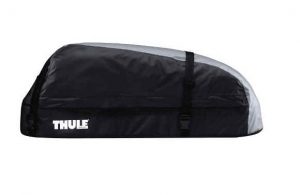 This carrier is easily folded up whenever it isn’t in use, making it portable enough to carry with you from one location to the next. The materials used are waterproof, and you can even install it without using any tools.
This carrier is easily folded up whenever it isn’t in use, making it portable enough to carry with you from one location to the next. The materials used are waterproof, and you can even install it without using any tools.
There is even a storage bag for convenience, and the sealed zipper and lock keep your items safe at all times.

